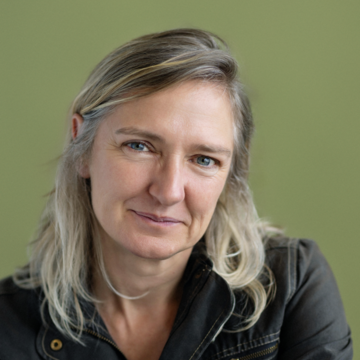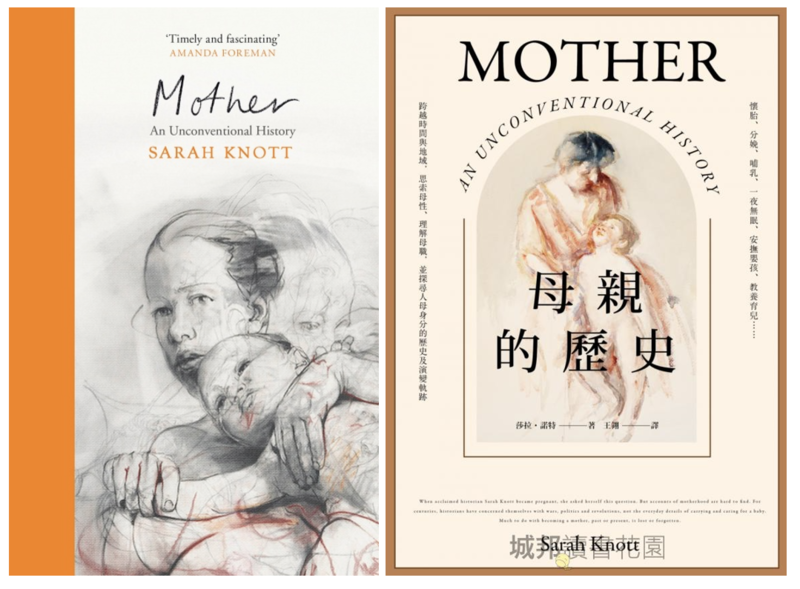Sarah Knott - Hillary Rodham Clinton Chair of Women’s History

Sarah Knott has been appointed as the Hillary Rodham Clinton Chair of Women’s History and a Professorial Fellow of St John’s College.
A historian of women, gender and reproduction, Knott has spent the last two decades in the United States. Her research has focused most recently on the history of maternity, to which she takes an interest in work and a curiosity about form and voice in historical writing. Mother Is A Verb: An Unconventional History makes the argument in the pre-title. The book treats being pregnant, birthing and caring for an infant as a set of activities always undertaken among other activities. Holding, nourishing, soothing to sleep and trying to sleep oneself, being continually interrupted – all these seemingly mundane tasks have a history of their own. All compress doing and feeling. Meanwhile, the form of the book takes up the maternal memoir, and investigates how to assemble a historical interpretation through a hundredweight of archival fragments. After all, it takes two hands to hold a baby, and those doing the work were among the least likely to leave behind traces of their lives. Mother (the London title, as published by Penguin), has been translated into Dutch, Polish, Turkish, Korean, and Mandarin, with more translations to follow.
Working on reproduction in this way brought Knott into the orbit of the Kinsey Institute for Research in Sex, Gender and Reproduction, and set her into collaboration with archivists who shared her passion for safeguarding the past’s hidden and lost histories. At the Kinsey Library and Special Collections, Knott collaborated with local archivists, artists, midwives and doulas to document and to retain materials about modern birth practices that fall outside conventional medical reports. The Birth Archive is one important result. The same spirit of collaboration led her to convene, with San Diego-based Caribbeanist Sara E. Johnson (author of the newly published Encyclopedie Noire), a writing collective entitled Archival Fragments, Experimental Modes. The AFEM Collective explore how literary innovation can generate new understanding of the lives of the dispossessed during the era of the transatlantic slave trade. Picking up new approaches in Black feminist studies – readers may know Saidya Hartman’s Wayward Lives – the AFEM Collective are aiming to map new empirical ways to make sense of the past.

Since the publication of Mother, and mindful of new feminist work across a range of disciplines, Knott is turning her attention to social reproduction or ‘care’. She explains that, for feminist philosophers, geographers, sociologists and economists, ‘care’ means all those activities that enable the survival and flourishing of human life. Yet the history of ‘care’ has not fully been told. Feminist economic historians like Jane Humphries here in Oxford have led the way. Scholars from other fields can provide key concepts, such as ‘othermothering’, the term coined by social theorist Patricia Hill Collins to highlight the mothering of other people’s children so central to the survival of the Black community in the United States. Knott’s current research, sometimes in collaboration with American historian Kirsten Swinth (author most recently of Feminism’s Forgotten Fight), and sometimes solo, seeks to give an intellectual and a social history to ‘care.’ She is figuring the origins of ‘care’ as a concept among late twentieth-century feminists inside and outside universities. Her longer-term research focuses on what she is calling, for want of a better term, ‘middle care’: the caregiving meted out to children in middle childhood, between what we now called pre-school, on the one hand, and puberty or adolescence, on the other. The caring for these children – who themselves were sometimes workers and caregivers, not just care’s recipients - can shed new light on the nexus of care relations in the past.
All of Knott’s work is motivated by the relationship between past and present. As she wrote in the preface to Mother: ‘Historical curiosity lets us fly,… allows us to get free of ourselves. To doubt, and to reimagine. To own more fully our own times, discerning in the contours what they are or might become. The past can burden us, or the past can release.’
Giving a history to care is part of that project: a feminist historian’s desire to connect with contemporary worries over how capitalism cannibalizes care, paying its workers poorly, or with new dimensions of activism such as the mutual aid so important to trans communities.
At Oxford, Knott hopes to contribute to teaching in women’s and gender history, especially on the topics of birth, reproduction and social reproduction. Her main collaborator is queer historian and Cooper Chair in the History of Sexualities Prof. Matt Cook, author of the forthcoming Writing Queer History, with whom she convenes the MSt in Women, Gender and Queer History. The creation of their two Chairs in the last five years signals Oxford’s commitments to these crucial fields of historical analysis.



